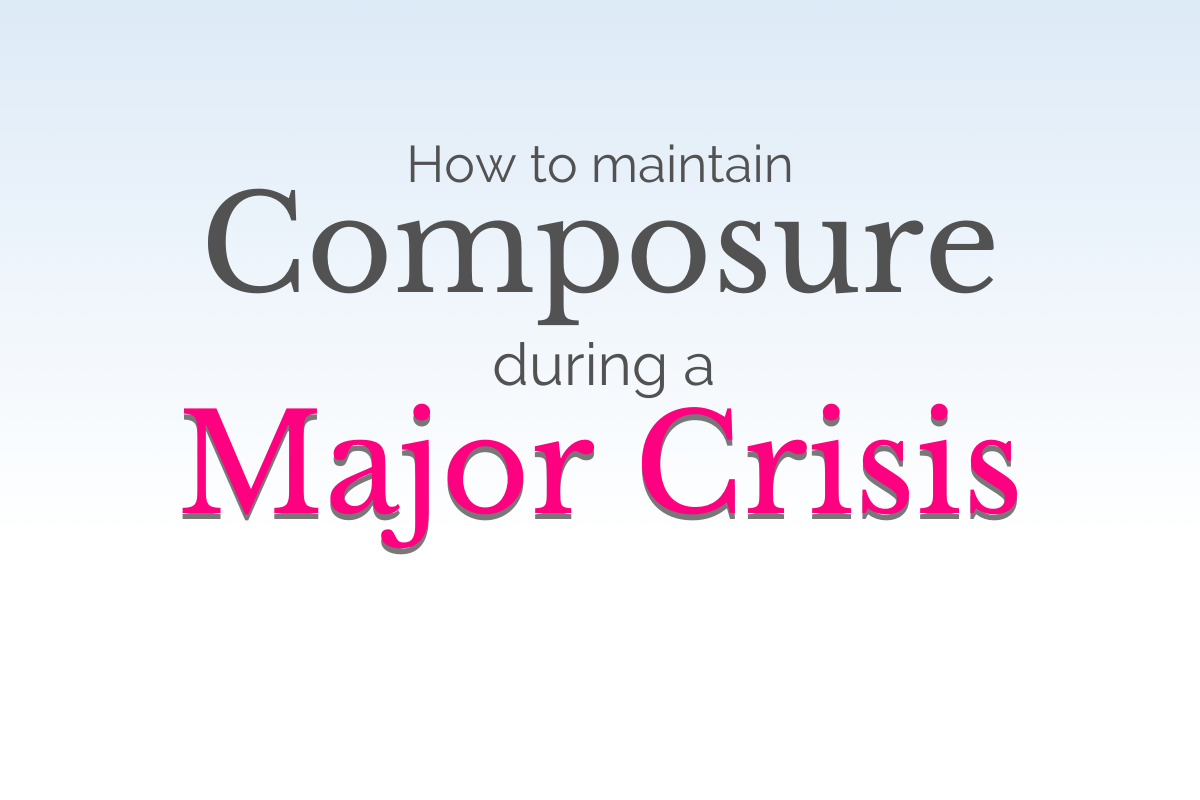Are there times this week when you’ve been angry? Feeling hopeless? Afraid?
Are you managing all of that with composure? Kara wasn’t!
When Kara called yesterday, she was vibrating with anger. As she discharged her furry, I knew her heart was racing, and her blood was hammering through her veins.
For several minutes at the beginning of our coaching call, Kara spewed forth a myriad of legit complaints, frustrations and indignations. She had every right to be angry. As I heard the story, I could feel my fury building too!
Stress has been rising for everyone. The pressure is building around us and closing in.
- Decisions are being made quickly in some cases.
- Not quick enough in others.
- Some decisions we agree with.
- Others we vehemently disagree with.
- The way some people are handling things is just plain wrong.
- Others have no options, and we can only feel for them as they do what is necessary,
You are in the middle of it. It’s nuts. Crazy. Saying it is stressful doesn’t even cut it. In many cases, it’s about life and death. It’s about yours and the people around you, livelihood.
So, it makes sense that you would be soooooooo angry at times; you are about to explode! But you can’t blow. Well, you can, but first, it’s not going to be pretty. Second, it’s not what those around you need.
They need you to be composed.
Another leader I talked to yesterday couldn’t stop crying. She was devastated. She feels helpless. Each of us can only do so much. Those that care for the vulnerable sector have to keep going. In other programs, it is clear it is time to cease operations. So clients have no service and employees have no work. The leader, perhaps that’s you, feels helpless, hopeless, and crushed.
But your team doesn’t need you weeping uncontrollably.
Your team needs you to be composed.
And then there is fear. We all feel it. It hangs in every conversation. Fear screams from the grocery stores. Social media reeks of fear.
But your team, your loved ones, don’t need you reacting with mad fear.
They need you to be composed.
Anger
Hopelessness
Fear
These are real emotions that you will be feeling now, along with a zillion others. It’s not the emotions that are “wrong.” It’s how you deal with them.
You need to be angry.
- However, you need to be mad at the right times and with the right people in the right way.
Hopelessness will enter your space again and again.
- However, you can’t hang on to it and spew it to those around you. You need to notice that feeling of hopelessness and then move it along. It’s not going to help you or the people who need you.
We are in a time of great fear
- However, we are not talking about a fear of public speaking or a fear of addressing a lingering conflict. We fear for our lives, our client’s lives, our mothers, children and friends. It’s not the fear that is the problem. It’s what you do with that fear that is.
The question is NOT: How do I shut my emotions off?
The question IS: How do I manage my intense emotions and still maintain my composure during a pandemic?
Three ways to help you maintain your composure
during a massive crisis
1) Create a safe time and space to release emotions.
If you don’t release it, you will explode or implode. You can not continue to let it build and build.
- Yell in your car.
- Pour it out into a journal.
- Scream when no one is home.
- Go for a run and pump it out of your body.
- Call your coach, mentor, counsellor or therapist.
- Talk to a friend, partner or peer who will let you release it safely.
Author Rick Warren suggests that we “vent vertically.” Prayer doesn’t need to be sweet and kind. Feel free to tell the big guy/gal what you really think! That’s part of strong faith. Release it all to God.
When you let off steam, it will take the pressure off and help you to be composed when you need it.
2) Take care of yourself
Yes, this is a crazy stressful time. AND more than ever, you need rest, healthy food, sunshine, movement in your body and something to feed your soul. You need to breathe in a way that releases the adrenalin surging through your body. When you use your breath to settle your nerves and calm down your raging emotions, you will be able to respond, rather than react.
Taking care of yourself and using your breath to regulate your emotions will help you to be composed.
3) Be honest, but composed
You are angry, feeling hopeless and fearful. It’s ok to say that. It’s ok to feel that. Pretending to be otherwise will make you feel inauthentic, and the people around you will feel that and lose faith in you.
Here are some examples of how to be honest:
- I’m angry that we lack resources for our clients because of people’s rash actions AND here is the plan for how we will deal with this.
- I feel hopeless, YET know that’s not what we all need right now. This is what I am doing to build up our hope and optimism again.
- Yes, I’m afraid. I’M ALSO educating myself and the team. We have activated our crisis management plan and are talking with other agencies in the same situation to figure out how we can navigate this crisis together.
If your tears flow or you speak with managed anger or fear, that’s ok.
That’s not a lack of composure. That’s anger, hopelessness and fear flowing out of you.
When you allow them to leave your chest, heart and head safely, you make room for compassion, hope and courage, which is precisely what you, your team, your loved ones and the world needs more than ever!


